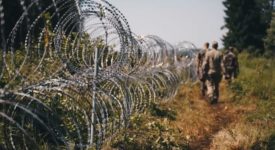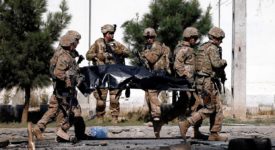The defeat of the Islamic State in Iraq and its “caliphate project” presents a renewed opportunity for the international community to rebuild the country and put an end to the vicious cycle of failure and repair that have plagued the country since 2003. Together with the upcoming national and provincial elections in 2018, the latest development offers a chance to rebuild national cohesion and win citizens’ confidence in government institutions and authorities. The last opportunity to rebuild the country emerged in 2008-2010 but the “success” was short-lived when the ISIS rapidly took control of a third of Iraq’s territory in 2014.
The most important part of this new attempt at the state-rebuilding process will likely be the breakdown of the ethno-sectarian blocs that have been a dominant force in the previous government formation cycles. Iraq has a complex ethnic make-up with significant Shia, Kurdish and Sunni populations whose leaders are now less able to unify their constituents based on identity politics and intra-community rivalries.
The current mood in the country is one of timid optimism. Although the Iraqis are fairly positive about the most recent developments, they are also worried that the root causes that had led to the rise of ISIS have not been sufficiently addressed. Therefore, many do not see the defeat of ISIS as the ultimate prerequisite towards a healthy state, but they rather put more emphasis on countering corruption through effective state-building and better governance.
When it comes to Iraq’s Kurdish leaders, these are now largely focused on securing influence and legitimacy within the Kurdistan Region instead of building a stronger Iraqi state while the Sunnis still have little leverage in Baghdad. While the Shia will undoubtedly still continue to dominate national politics after 2018, they generally also disagree internally about the form of the statehood – the options range from a strong state through strong institutions to a strong security sector.
It is very unlikely that one of these three options will dominate in 2018. The outcome will be largely defined by the struggle for power over the key ministries and the future of the constitutionally mandated independent commissions. The intra-Shia dynamics will also define the future of the US-Iran relationship in Iraq. It is currently, however, hard to imagine that Washington and Tehran will join forces to achieve what is in Iraq’s best interests.
‘Iraq After the Fall of ISIS: The Struggle for the State’ – Analysis by Renad Mansour – Chatham House, The Royal Institute of International Affairs.
(The Analysis can be downloaded here)







